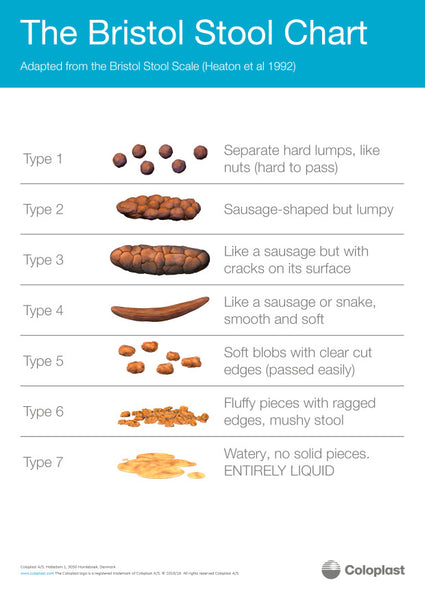Battle of the Poops: Men vs. Women
By Julie Andrews
It’s been a big year for gender parity. We’re making major strides toward to a world where women are viewed as equal to men. Sorry, 1950s, but polio, poodle skirts and old-school societal views are OUT. Gender equality is IN. Only took a few years. Okay, a lot of years.
After doing some research, we found that there is one area men and women may not be so equal. The bathroom.
But how different are we when it comes to our poop? The answer may surprise you.
First, let’s compare odors. Although most people think their shit doesn't stink, science again proves otherwise. Turns out there are differences in stool odors between men and women, says Edwin McDonald, MD, assistant professor of gastroenterology at the University of Chicago. That’s because poo is comprised mostly of bacteria that’s been living in the intestines, and the types of bacteria in the guts of men and women vary. “A stool’s smell depends on the types of bacteria living in the gut, as it’s the bacteria that converts foods we don’t digest well into gasses. Due to this variation in the types of bacteria, the types of gasses produced may also vary between men and women, and, as we all know, some gasses smell worse than others,” says Dr. McDonald.
In general, for both sexes, the main factors contributing to how our stools smell are bacteria and malabsorption, or the inability of the gut to absorb certain foods, says Chad Gonzales, MD, a Utah-based gastroenterologist at Ogden Gastro. “Diets high in meats, dairy, garlic and cruciferous vegetables, including broccoli, cabbage and kale, produce gas high in sulfur that tends to smell worse,” he says, “while medical conditions that contribute to poor absorption of nutrients, such as lactose intolerance, can also lead to gas, bloating and diarrhea.” Dr. Gonzales adds that medical conditions including Celiac disease, Crohn’s disease, food allergies and carbohydrate intolerance can also cause foul-smelling stool, as well as taking certain meds, such as antibiotics.

As for other differences in stools among the sexes, a recent study in the American Journal of Gastroenterology, which assessed answers to poop questionnaires by adults in the U.S., found that women tend to have (or at least report) a wider range of poop consistencies than men based on the different types of stools characterized on the Bristol Stool Scale, says Dr. McDonald. The Bristol Stool Scale is a popular diagnostic medical tool that classifies human feces into seven categories based on shape, size and texture “Researchers found that some women frequently had harder stools than men, whereas other women frequently had looser stools,” says Dr. McDonald, adding, “This is not surprising, since we know that estrogen may affect the colon’s motility.”

In terms of having bowel movements, or the act of pooping itself, there are important anatomical and functional differences between the genders that may affect how women and men’s GI tracts work and how each sex goes, says Dr. Gonzales. “The differences are significant and probably cause things to work a little differently among men and women. For example, women have wider pelvises and extra internal organs—the uterus and ovaries—he says, while men have stronger muscle strength of the internal and external sphincter, or the circular muscle of the anal canal.” Due to the additional internal organs, female colon are slightly longer and hang a bit lower than those of males. These differences are noticeable during colonoscopies to the point that most gastro doctors who did not know a patient’s sex would be able to correctly guess after performing the exam. And because men’s abdominal walls are stiffer, guys can push food through the GI tract more readily (just one more way that as Tammy Wynette crooned, sometimes, it’s harder to be a woman).
Both doctors said they tend to see more women with complaints of constipation, diarrhea and irritable bowel syndrome than men. This may be due to the fact that women have a higher likelihood of developing irritable bowel syndrome, a common gastrointestinal disorder, says Dr. McDonald, or, he adds, it may be that women are more likely to seek medical care for this and other health issues, in general, even though poo problems are likely just as embarrassing and uncomfortable for both sexes. Dr. Gonzales agrees. “Men, in my opinion, are more likely to consider their stools normal, whereas women are more likely to talk with their doctors about gas, bloating and foul-smelling stool.”
So when it comes to whose poop is worse, it's really a toss-up. Something we can all agree on… everyone's shit stinks.
















